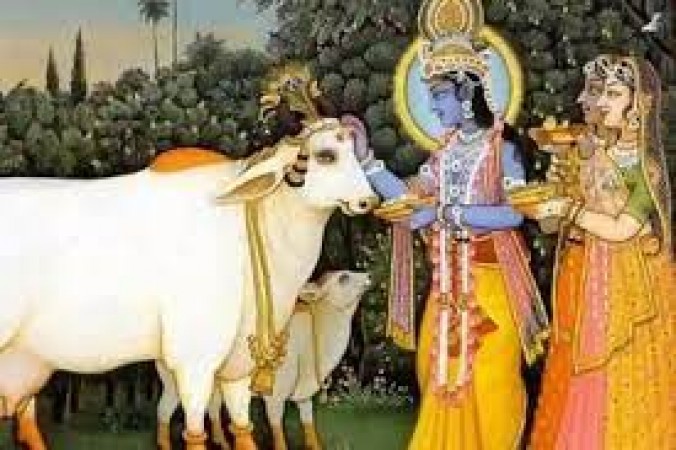
In a world where traditions and rituals are cherished, the Govatsa Dwadashi fast stands out as a unique and heartfelt observance. This ancient practice revolves around the veneration of cows and their calves, with the underlying aspiration for the longevity and well-being of one's progeny. Let's delve into the significance, customs, and spiritual essence of this time-honored tradition.
The Roots of Devotion
At its core, Govatsa Dwadashi is a sacred Hindu observance that falls on the twelfth day of the bright half of the Hindu month of Kartik. It is a day when reverence and gratitude are extended towards the gentle creatures of the bovine world – cows and their calves.
The Symbolism of the Cow and Calf
The cow, often referred to as "Kamadhenu" or the wish-fulfilling cow, symbolizes abundance, motherhood, and the provider of sustenance. The calf, in turn, embodies innocence and the future generation. This day is dedicated to seeking blessings for the longevity and prosperity of one's offspring, just as a cow nurtures her calf.
The Break of Dawn
The Govatsa Dwadashi fast commences at dawn, as devotees wake up to perform their morning ablutions and adorn themselves in clean attire.
The Offering of Prayers
Devotees visit local temples or dedicated spaces in their homes to offer their heartfelt prayers. The idols of cows and calves are adorned with flowers and vermillion.
Fasting and Austerity
Many individuals observe a fast on this day as an act of devotion. Some may opt for a partial fast, consuming only milk and fruits, while others choose to abstain from food and water for the entire day.
Acts of Charity
Charity is an integral part of Govatsa Dwadashi. Devotees often donate food, clothing, or money to the less fortunate, in the spirit of selflessness and compassion.
Mantras and Chants
Reciting sacred mantras and hymns, especially those dedicated to Lord Krishna, is a common practice. The vibrations of these chants are believed to create an aura of positivity and spirituality.
Connecting with Divine Energy
On Govatsa Dwadashi, the divine presence is believed to be heightened, and the act of worshiping cows and calves is considered a direct path to divine blessings.
Nurturing Future Generations
This observance symbolizes the sacred bond between parents and children, emphasizing the desire for a prosperous and enduring legacy.
Compassion and Gratitude
The rituals and customs surrounding Govatsa Dwadashi encourage devotees to be more compassionate, generous, and grateful for the abundance in their lives. The Govatsa Dwadashi fast is a beautiful representation of how culture, spirituality, and values intersect in the rich tapestry of Hindu traditions. By honoring the cow and calf, this observance inspires individuals to seek the blessings of longevity and prosperity for their children, while also nurturing their own sense of compassion and gratitude. Embracing traditions like Govatsa Dwadashi not only connects us to our roots but also serves as a reminder of the enduring human quest for well-being, prosperity, and spiritual enlightenment.
WHO's Warning: Delhi's PM2.5 Pollution Reaches Alarming Levels, Exceeding Guidelines by 100 Times
Newborn babies are suffocating due to air pollution, know how to save them?